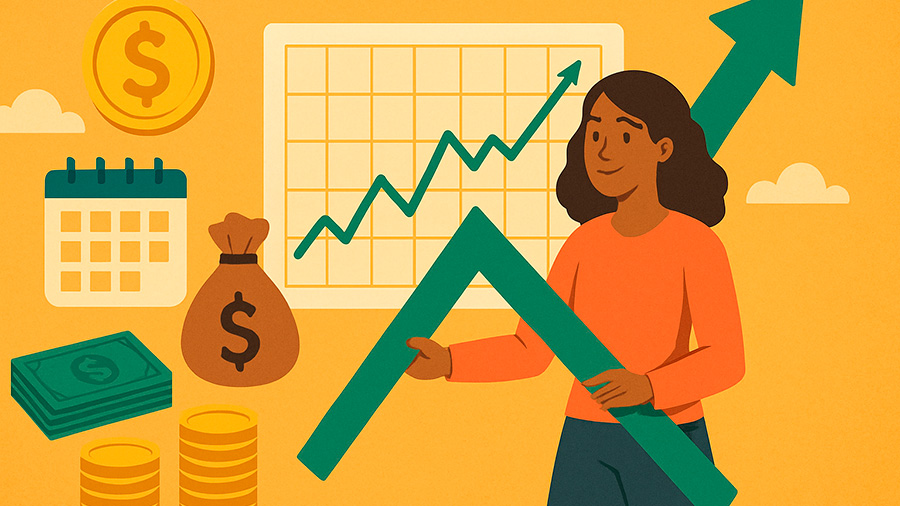
Money is more than just a way to pay bills—it’s the foundation of freedom, opportunity, and security. No matter your age or background, choosing the right credit solutions can shape how confidently you live today and how well-prepared you are for tomorrow. The good news is that using credit wisely isn’t just for experts or people with huge incomes. It’s a series of practical steps, smart decisions, and habits that anyone can adopt. Let’s break down how credit solutions work in a way that feels clear, motivating, and manageable.
Why Credit Solutions Matter for Everyday People
When you don’t actively manage your money, it tends to manage you. That can look like constant stress over bills, surprise debt, or being unprepared for emergencies. On the other hand, people who explore credit solutions with intention enjoy more peace of mind and flexibility. They can handle unexpected events, plan for milestones like buying a home or starting a business, and even retire earlier. Control doesn’t mean being rich—it means being intentional and prepared.
Building the Foundation: Budgeting and Awareness
Everything starts with awareness. To benefit from credit solutions, you need to know exactly where your money is going. Many people avoid budgeting because they think it’s restrictive, but in reality, it’s empowering. It shows you what you can afford, what you can cut back on, and how much you can save. A good budget balances needs, wants, and savings so that you’re not living paycheck to paycheck. Awareness alone often makes people feel instantly more in control, even before they change spending habits.
Simple Steps to Create a Practical Budget
- Track all your expenses for one month without judgment. Just gather data.
- Separate spending into categories: fixed needs, variable wants, savings, and debt repayment.
- Assign limits to each category, leaving space for fun and flexibility.
- Review your budget weekly, not monthly. Small adjustments prevent big surprises.
The Role of Debt in Financial Planning
Debt is one of the biggest factors that can either help or harm your financial progress. Used strategically, it can open doors to education, homeownership, or business expansion. But unmanaged debt—especially high-interest credit card debt—can drain your resources. Choosing credit solutions wisely means paying down high-interest balances quickly, avoiding unnecessary borrowing, and knowing when a loan is a smart investment versus when it’s a trap.
Common Debt Mistakes to Avoid
- Only making minimum payments on credit cards.
- Borrowing for lifestyle upgrades instead of necessities or investments.
- Ignoring the true cost of interest over time.
- Consolidating debt without addressing spending habits.
Saving and Investing: Turning Effort into Growth
Saving is where financial stability begins, but investing is what builds wealth over time. People often believe investing is complicated or reserved for the wealthy, but today’s tools make it accessible to anyone. Apps, robo-advisors, and low-cost index funds allow even beginners to start small and grow gradually. The earlier you start, the more your money benefits from compound growth. Even small amounts invested regularly can have a life-changing impact years down the line. Pairing good credit solutions with consistent investing helps balance risk and opportunity.
| Strategy | Short-Term Benefit | Long-Term Benefit |
|---|---|---|
| Emergency Fund | Covers sudden expenses without debt | Reduces financial stress |
| Retirement Account (401k, IRA) | Tax savings today | Stable income in retirement |
| Investing in Index Funds | Accessible with low fees | Compounding wealth over decades |
Financial Literacy: Knowledge Is Power
It’s impossible to use credit solutions effectively without basic financial literacy. Schools often skip over these lessons, leaving many adults confused about terms like APR, credit utilization, or compound interest. The solution is to take learning into your own hands. Books, podcasts, and online courses make it easy to build knowledge at your own pace. The more you understand, the less intimidating money feels, and the better your decisions will be.
Protecting Yourself: Insurance and Safety Nets
Smart money management isn’t just about growth—it’s about protection. Insurance may feel like a cost you’d rather avoid, but it’s essential. Health, life, home, and auto insurance protect you from setbacks that could wipe out years of progress. Likewise, estate planning and wills ensure your loved ones are protected. These steps might feel advanced, but they’re a core part of managing finances alongside credit solutions.
Types of Insurance to Consider
- Health insurance: covers medical emergencies that could lead to massive debt.
- Life insurance: protects your family if you pass away unexpectedly.
- Home or renter’s insurance: safeguards your property and belongings.
- Disability insurance: replaces income if illness prevents you from working.

Mindset Matters: Breaking Emotional Barriers
Money isn’t just numbers on paper—it’s emotional. Fear, shame, or avoidance can stop people from making the best use of credit solutions. Others overspend to cope with stress or to keep up with peers. Recognizing your emotional triggers around money is key. A healthy mindset allows you to view money as a tool, not as a source of guilt or conflict. Even small victories, like paying off one debt or hitting a savings goal, can shift your confidence and help you see progress more clearly.
Generational Perspectives on Financial Control
Different generations approach money differently. Young people today face student loan debt and higher living costs, but they also have digital tools and side-hustle opportunities their parents didn’t. Middle-aged adults often juggle mortgages, family expenses, and retirement planning. Seniors focus on preserving income and avoiding scams. The truth is, it’s never too early or too late to explore credit solutions. Each stage of life has unique challenges, but the same principles of awareness, discipline, and planning apply universally.
| Life Stage | Main Challenge | Key Strategy |
|---|---|---|
| Young Adults | Student loans, low income | Build financial literacy, start investing early |
| Middle Age | Family costs, mortgage, retirement savings | Balance short-term needs with long-term goals |
| Seniors | Living on fixed income | Protect savings, avoid unnecessary risk |
Practical Tips You Can Start Today
Sometimes big financial goals feel overwhelming. Breaking them into daily or weekly actions makes them achievable. Start by reviewing your bank statements, setting up automatic transfers into savings, or making one extra payment on your credit card. Talk openly with family about money so everyone is on the same page. Most importantly, don’t wait for the “perfect moment” to start—there’s no better time than now.
Quick Wins to Build Momentum
- Cancel subscriptions you don’t use.
- Cook at home three nights a week instead of ordering out.
- Use cash instead of cards for discretionary spending.
- Automate your savings, even if it’s only $25 per paycheck.
Conclusion: Credit Solutions as a Path to Freedom
Financial security isn’t about perfection or wealth—it’s about progress. Every intentional step you take puts you closer to stability and independence. From budgeting and debt management to investing and protecting your assets, each move builds confidence and resilience. By applying the right credit solutions, you give yourself the freedom to live on your terms. No matter your age or situation, the power to shape your tomorrow is in your hands today.
